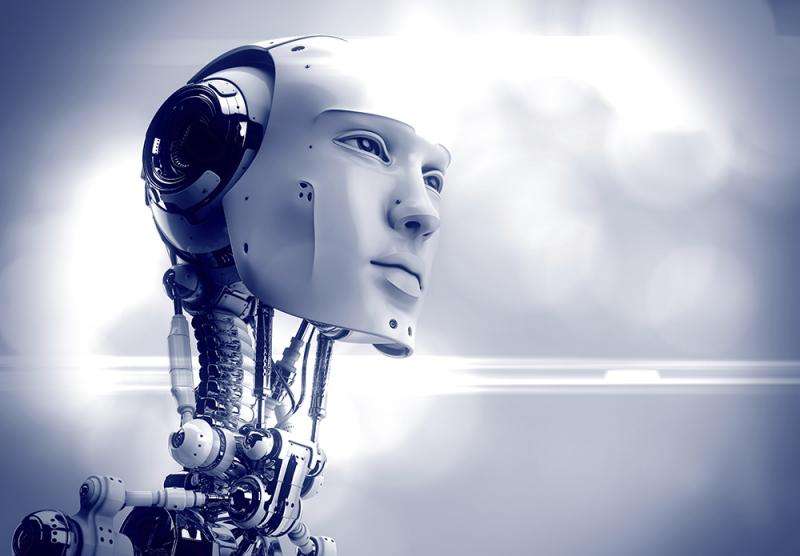Robotics researcher discusses robot evolution

Concha Monje is a researcher in the Robotics Lab of the Department of Systems Engineering and Automation at the Universidad Carlos III de Madrid (UC3M). There, she is one of the people in charge of TEO, a 60-kilo humanoid robot that is able to walk and manipulate a variety of objects. The author of nearly one hundred scientific articles, she has now taken her knowledge to the world of movies, working as a science consultant for the film Autómata, starring and produced by Antonio Banderas and directed by Gabe Ibáñez. This science fiction movie explores a future in which humanoid robots develop an awareness of their own.
How did you work as a consultant on this project?
Reply: The script was already finished, so it was more about adding new ideas or different versions to what had already been proposed in those parts where, on a scientific level, greater rigor was needed. Even though the film is science fiction and you have to let your imagination run wild, they also wanted to be sure that the part that referred to the design of the robot and its components was scientifically sound.
What part of the team did you have contact with?
I had contact with Gabe Ibañez, the director, and with two other scriptwriters who were working with Gabe, Javier Sánchez Donate and Igor Legarreta. My experience with them was wonderful; they are normal, down-to-earth people, extremely intelligent, with amazing artistic talent and capacity for work. It was a tremendously enriching experience. I also had the opportunity to speak a bit with Antonio Banderas about the project, and he was totally enthusiastic and supportive. He told me that he had had no doubts about saying "yes" when the project was proposed, both as an actor in the film and as a producer.
What was your experience in the world of films like?
It was not disappointing in the least; I am a real movie fan, and I always imagined that world as being very attractive. Having had the opportunity to work with top professionals was really satisfying; it was beyond any expectations I might have had.
Is technology like what is seen in Autómata currently available?
The movie depicts a classic vision of a humanoid robot with one very futuristic facet in that the robots acquire a degree of intelligence that is beyond that of the humans. We are very far from something like that happening for real. We are light-years away from that. What is in the immediate future is having robotic devices that help us with everyday tasks, in companies, in factories and in many other sectors.
Could it happen in the future?
I think that sooner or later, maybe not in the way it happens in the movie, robotic evolution will occur. Based on the behavioral rules that are programmed, on its knowledge of its surroundings and on its interaction with the rest of humanity, the robot could manage to evolve on its own. In any case, the future is very uncertain in this regard.
Should we be afraid of this uncertain future?
I don't think so. It all depends on how we program these robots, what rules we infer for them so that they can evolve from there. Clearly, there could always be a point at which the robots' own intelligence, in that evolution, goes beyond our knowledge. At that point, yes, we will have that uncertainty; but I understand that if we implement solid ethical and moral bases we should not be afraid.
Are robots capable of feeling emotions like in the film?
Well, actually, in the Robotics Lab research group we are working with the implementation of emotions in a social robot, like Maggie. Thanks to this implementation and the robot's sensory and processing capabilities, we can apparently get the robot to feel and show emotions through its actions and its voice.
What other lines of research on robotics are being followed at UC3M?
In my department, and more specifically in my Robotic Labs research group, we have several lines open. I, personally, am working on a humanoid robot. We have a humanoid robot called Teo that has out locomotion and manipulation abilities. These are skills that have to be developed and implemented in the robot. That is basically what we are working on. We have another subgroup that is working on social robotics with Maggie, and another that is in charge of aid robots, to help people with handicaps. Other than that, we divide up the research in a lot of other applications.
What do you think are the challenges for the robotics of tomorrow?
They will have to do with developing a prototype that we can really integrate into its surroundings; I think that is basic. A lot of times we make a huge effort to design a prototype that ends up not working because we can't integrate it into our surroundings.
Is there anything else you would like to say?
I have to especially thank this university, because I have been fortunate enough to be able to develop my knowledge of robotics here with great professionals like those in my research group. Thanks to the university's support for this type of project and for the different fields of science I have been able to enjoy so many other things that have come my way because of that.
Provided by Carlos III University of Madrid




















